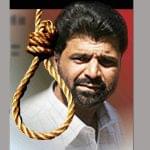Reference
Observations and Recommendations of RanganathMisra Commission Report: Religious and Linguistic Minorities of India
The commission under the chairmanship of Justice RanganathMisra, constituted by the Ministry of Minority Affairs in October 2004 gave specific recommendations to the government in upgrading the social and economic conditions of the minorities in the nation. That was in May 2007 and till date little has been done in this regard.
At a Glance: Observations and recommendations
- The commission observes that there has been no indication whatsoeverin the Constitution – either in Article341 or elsewhere – of an intention thatScheduled Castes must remain confinedto any particular religion or religions.Article 341 only empowers the President(read Central Government) to issue theinitial lists of Scheduled Castes and theParliament to amend such lists later. It doesnot even remotely create any caste-religionlink in respect of Scheduled Castes. Sucha link was createdby executive action while issuingthe Constitution (Scheduled Castes) Order1950 that prevents Muslims or Christians to be listed as backward communities.
- And the commission recommends removalof this link by legislative action in terms ofArticle 341.
- Commission unanimously refutes the contention thatArticle 25 of the Constitution supportsthe view that the Sikh, Buddhist and Jainfaiths are to be regarded as off-shoots of theHindu religion. They rather are of the opinion that the view was based on a misreading ofthat Article and conflicts with the letter andspirit of the Constitution. Accordingly, the claim that it was because of thisintrinsic “support” from the Constitutionthat later on the Scheduled Castes Order 1950 couldbe amended to include Sikhs and Buddhistsamong the Scheduled Castes.
- The Commission says that it seems that the Scheduled Castes net wasinitially restricted to Hindus for some supra-Constitutional reasons and seeking supportfrom the Constitution for later extending it tothe Sikhs and Buddhists was an afterthought– which, however, is wholly repugnant to theletter and spirit of the Constitution.
- Para 3 of the Constitution (ScheduledCastes) Order 1950 does not at all speak ofScheduled Castes converting to Christianityor Islam. That a Scheduled Caste Hindu,Sikh or Buddhist on converting to any otherreligion must lose his Scheduled Caste status is only a secondary effect. Its main and more serious effect isthat those sharing even by birth the samecastes as are listed as Scheduled Castes areexcluded from the net only because theyare not Hindu, Sikh or Buddhist. In the opinion of the Commission the effect of Para 3 conflicts with the Constitutional guarantees of equalityof status and opportunity and no religionbaseddiscrimination, therefore, it is recommended to be repeal.
- The Fundamental Rights of the citizensenshrined in the Constitution are the supreme and overriding part of the Constitution – and this part does insist on complete equality of citizens without any discriminationwhatsoever on religious grounds. The origin of the caste system in a particular religionin the distant past, the egalitarianism ofsome other faith traditions in their originalunadulterated form, and other similarthings cannot be accepted as factors that canbe allowed to prevail over the Constitution’sunconditional emphasis on the equality ofcitizens and non-discrimination betweenthe followers of various religions among thecitizens of India.
- Recommendations point that in the matterof criteria for identifying backwardclasses there should be absolutely nodiscrimination whatsoever between themajority community and the minorities and, therefore, the criteria now applied forthis purpose to the majority community– whatever that criteria may be – mustbe unreservedly applied also to all theminorities.
- As a natural corollary to the aforesaidrecommendation all those classes, sections and groupsamong the minorities should be treatedas backward whose counterparts in themajority community are regarded asbackward under the present scheme ofthings.
- Furthermore all thoseclasses, sections and groups among thevarious minorities as are generally regardedas ‘inferior’ within the social strata andsocietal system of those communities –whether called ‘zat’ or known by any othersynonymous expression – should be treatedas backward.
- To be more specific, the commission recommended that all those social and vocational groupsamong the minorities who but for theirreligious identity would have been coveredby the present net of Scheduled Castesshould be unquestionably treated associally backward, irrespective of whetherthe religion of those other communities recognizes the caste system or not, implying that Muslims or Christians who happen to be deprived of reserved rights for the backward community should be made eligible to attain equality in society.
- The commission also recommended that those groupsamong the minorities whose counterpartsin the majority community are at presentcovered by the net of Scheduled Tribesshould also be included in that net; andalso, more specifically, members of theminority communities living in any TribalArea from pre-independence days shouldbe so included irrespective of their ethnic characteristics.
